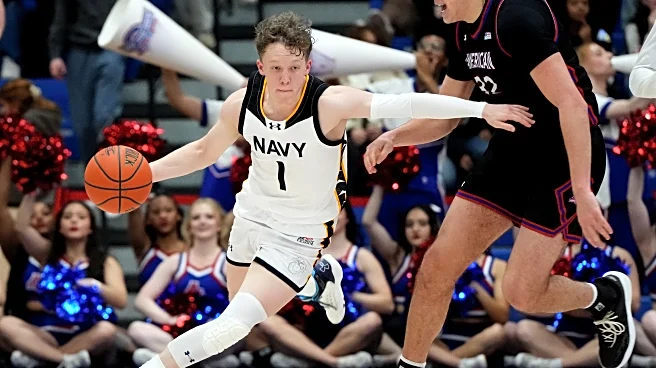What's Happening?
Team USA's decision to pay its Ryder Cup players for participation in this year's tournament has sparked criticism from notable figures in the golf community. Andrew Coltart, Dame Laura Davies, and David Howell have voiced their disapproval, arguing that the Ryder Cup should remain a competition driven by national pride rather than financial incentives. The controversy arises as the Ryder Cup, a prestigious biennial golf event, traditionally emphasizes the honor of representing one's country without monetary compensation. This decision marks a shift in the tournament's ethos, prompting debate over the role of financial rewards in sports.
Why It's Important?
The decision to compensate Team USA players for their Ryder Cup participation could have broader implications for the tournament's future and the sport of golf. Critics argue that introducing pay could undermine the spirit of the Ryder Cup, which has historically been about national pride and sportsmanship. This move may set a precedent for other international sports events, potentially altering the motivations of athletes and the dynamics of team competitions. The debate also highlights the growing influence of commercial interests in sports, raising questions about the balance between tradition and modern financial realities.
What's Next?
As the Ryder Cup approaches, stakeholders in the golf community may continue to discuss and debate the implications of Team USA's pay decision. The controversy could lead to further scrutiny of financial practices in international sports competitions. Organizers and governing bodies might consider revisiting policies regarding player compensation to address concerns about preserving the integrity and tradition of the event. Additionally, reactions from players, fans, and sponsors could influence future decisions on financial incentives in sports.
Beyond the Headlines
The criticism of Team USA's pay demands for the Ryder Cup also touches on ethical considerations in sports. The debate raises questions about the values that should guide international competitions and the potential impact of financial incentives on athlete behavior and team dynamics. This development may prompt discussions on how to balance commercial interests with the preservation of sports traditions and the promotion of fair play.










